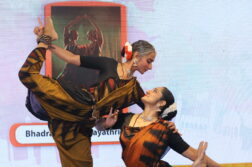More a scapegoat than a spy!
“… an independent woman, a divorcee, a citizen of a neutral country, a courtesan and a dancer, which made her a perfect scapegoat for the French, who were then losing the war. She was kind of held up as an example of what might happen if your morals were too loose.”
– British Historian Julie Wheelwright
Does History judge men, women and events objectively and fairly? It is, they say, more objective than stories, or mostly. But they also say that it belongs to the victor, not to the vanquished. The life and times of Margaretha Geertrida Zelle, popularly known as Mata Hari, offer an intriguing and fascinating account of how history treats those who border on infamy and calumny.
Her beauty and charm were legendary. She was the most desired woman of her time. This succinct but evidently enthusiastic description of her beauty by a French journalist eloquently sums up her timeless pulchritude, ‘feline, extremely feminine, majestically tragic, the thousand curves and movements of her body trembling in a thousand rhythms.’ Another journalist saw her as “slender and tall with the flexible grace of a wild animal, and with blue-black hair, making a strange foreign impression.” Such was the sweep of her charm and unearthly beauty that the best of youth and virile masculinity of German and French army congregated around her like inebriated moths circling the sweet and bright luminosity of an irresistible, extraordinary flame.
The Transformation
Born Margaretha Geertrida Zelle in Leeuwarden, Netherlands on August 07, 1876. She acquired the stage name of Mata Hari when she chose to become a dancer and a courtesan. Her marriage to a Dutch colonial army Captain Rudolph MacLeod took her to Dutch East Indies, now Indonesia where she not only learnt the exotic dances but also changed her name to Mata Hari which in Javanese means ‘eye of the day’ or ‘Sun’. It is commonly believed that her choice or compulsion to stray into the very glamorous though questionable life of a dancer and a courtesan was largely due to the ill-treatment meted out to her by her husband from whom she got two children, a daughter and a son, a divorce later on and his betrayal when he reneged on his promise to maintain her.
The transition to a new avatar and her finding residence eventually in Paris, and her transformation into a spy, and then a double agent, is the stuff of fascinating legend that got built around her during her own life but even more after her execution on October 15, 1917. She was shot by a firing squad of the French Army on charges of espionage and subversive secret activities. More than 100 years after her death, her story never ceases to interest and excite common men and historians alike.
Her life saw three distinct phases. The one spent in East Indies (Java and Sumatra) along with her husband of Scottish origin, where she imbibed the local culture but more importantly, learnt the rudiments of oriental dances that she perfected later in a western setting, as uncommonly exotic and sensuous for the time. On her return to Paris, her second phase of life began when she became famous as an exotic dancer possessed with an attitude of extraordinary abandon and daring with the courage to display her assets boldly but always with grace and style. The third and the last phase began with the beginning of WWI when, she transformed into a courtesan and a spy, tragically ending in her arrest, trial and execution in 1917. Each one of her life’s phases reflected a beautiful and resolute woman’s struggles and triumphs to conquer her own vulnerabilities and conquest of the weakness that attracted men to her unusual beauty and charm.
Notwithstanding her reputation as a thorough professional and largely emotionless, she had an unusually sensitive and tender heart which was evidenced by her love for the Russian soldier Maslov whom she really loved. When Maslov was critically injured in war, she travelled all the way to an enemy country to meet him and to be with him, taking full advantage of her Dutch citizenship which made her a neutral citizen. However, like much in her life, her love also remained unrequited. Maslov, broken, deeply embittered and physically incapacitated having lost his eyes was so disillusioned that he declined to testify for her when she was facing her trial. This terrible development was such a heart-breaking moment that It was reported that she fainted when she learned that Maslov had abandoned her.
Beginning of an End
While her days as a dancer, which were also dominated by Isabella Duncan and Ruth St. Dennis on the other side of the Atlantic, contemporaneously, were the most glamorous and enticing, her role as a double agent working both for the Germans and French and the subsequent denouement in her life is what has fascinated historians.
Fresh evidence suggests that she was more a victim of circumstances and there is nothing on record to establish any serious espionage assignment that she may have carried out as such. By 2007, it was being convincingly argued that she may not actually be guilty of the charges that the French levelled against her. Fresh research has unearthed the likely conspiracy which the French Army hatched to retrieve its battering image of continuing defeats and sagging morale of its soldiers and found in Mata Hari an unsuspecting scapegoat who was powerless in retaliation to the charges of espionage and defenceless in the face of French army’s might. It did not help matters at all that she was living a life of opulence and luxury and maintained a lifestyle so lavish and glamorous that it stood so strikingly shocking and incongruous for those days of misery and privation that the people were experiencing at large.
In a contrived communication on secret channels known to be intercepted by French, her connection with the Germans was revealed, which formed the basis for her arrest on 13 February 1917 from her room in Hotel Elysee Palace, Paris. She was put on trial on 24 July, accused of spying for Germany, and consequently causing the deaths of at least 50,000 soldiers. Although the French and British intelligence suspected her of spying for Germany, neither could produce definite evidence against her.
Contrived Trial
In 1917, France had been badly shaken by the Spring Mutinies of the French Army, failure of the Nivelle Offensive leading to a huge strike wave. Many believed that France might simply collapse as a result of war exhaustion. In July 1917, a new government under Georges Clemenceau had come into power, utterly committed to winning the war. In this context, having one German spy on whom everything that went wrong with the war so far could be blamed was most convenient for the French government, making Mata Hari the perfect scapegoat, which explains why the case against her received maximum publicity in the French press and led to her importance in the war being greatly exaggerated.
Wesley Wark, the Canadian historian maintained that Mata Hari was never an important spy, if at all. “They needed a scapegoat and she was a notable target for scapegoating”. British historian Julie Wheelwright likewise stated: “She really did not pass on anything that you couldn’t find in the local newspapers in Spain.”
During trials, she was portrayed as a femme fatale, the dangerous, seductive woman who uses her sexuality to effortlessly manipulate men. Her prosecutor Bouchardon argued, “without scruples, accustomed to making use of men, she is the type of woman who is born to be a spy.”Her defence counsel, veteran international lawyer Édouard Clunet, on the other hand, faced impossible odds; he was denied permission either to cross-examine the prosecution’s witnesses or to examine his own witnesses directly.
Unfazed in the face of Execution
She was executed by a firing squad of 12 French soldiers just before dawn on 15 October 1917. She was not bound and refused a blindfold. She defiantly blew a kiss to the firing squad. A British reporter Henry Wales, an eyewitness, recorded her death, thus: “After the volley of shots rang out, slowly, inertly, she settled to her knees, her head up always, and without the slightest change of expression on her face. For the fraction of a second, it seemed she tottered there, on her knees, gazing directly at those who had taken her life. Then she fell backwards, bending at the waist, with her legs doubled up beneath her.” A non-commissioned officer then walked up to her body, pulled out his revolver, and shot her in the head to make sure she was dead.
Her Remains- mysterious and missing
Mata Hari’s body was not claimed by any family members and was accordingly used for medical study. Her head was embalmed and kept in the Museum of Anatomy in Paris. In 2000, archivists discovered that it had disappeared, possibly as early as 1954, according to curator Roger Saban, during the museum’s relocation. Her head remains missing. Records dated from 1918 show that the museum also received the rest of the body, but none of the remains could later be accounted for.
A New Assessment
American historians Norman Palmer and Thomas Allen, in many ways, reflect her new assessment. “She was naïve and easily duped, a victim of men rather than a victimizer.”
“Harlot? Oui! Mais traitoress, jamais!” ‘Courtesan! Yes; Spy, never!’. This is how she reacted when confronted with the charge by the French Military that she was a spy for Germans.
After almost a century, her statement made then rings a truth, or almost.
Author Uday Kumar Varma’s PostScript
History does it treat men and events evenly? Mostly perhaps, in the long run! But there are injustices and atrocities, not caused by circumstances but by the chroniclers of these circumstances. Mata Hari, the (in)famous spy of WWI times, denigrated and later executed as a spy working for Germans presented a multi-hued life, kaleidoscopic but tragic. Not much was understood about her during her lifetime and till almost a hundred years afterwards. However, new evidence and fresh evaluation of her life offer glimpses of life largely misunderstood. The above piece endeavours to present her life in the light of new discoveries about her deeds and misdeeds.
Women have often been neglected as major contributors to the history of the world either through commission or distortion. It’s a delight for us to have taken on the challenge to unearth these overlooked gems and keep relevant the stories of amazing women in history.
This article is part of a series on women in history by author Uday Kumar Varma, former secretary of the Ministry of Information & broadcasting and MSME, Government of India. An ardent proponent of gender equity, Varma writes on women through history who have excelled in their area of passion and defied conventions. You may also like to read about the activist Emmeline Pankhurst from England, the lady sniper Lyudmila Pavlichenko from Russia, the American pilot Amelia Earhart or Judge Ruth Bader Ginsberg or just maybe a piece on the Spanish artist Frida Kahlo?





